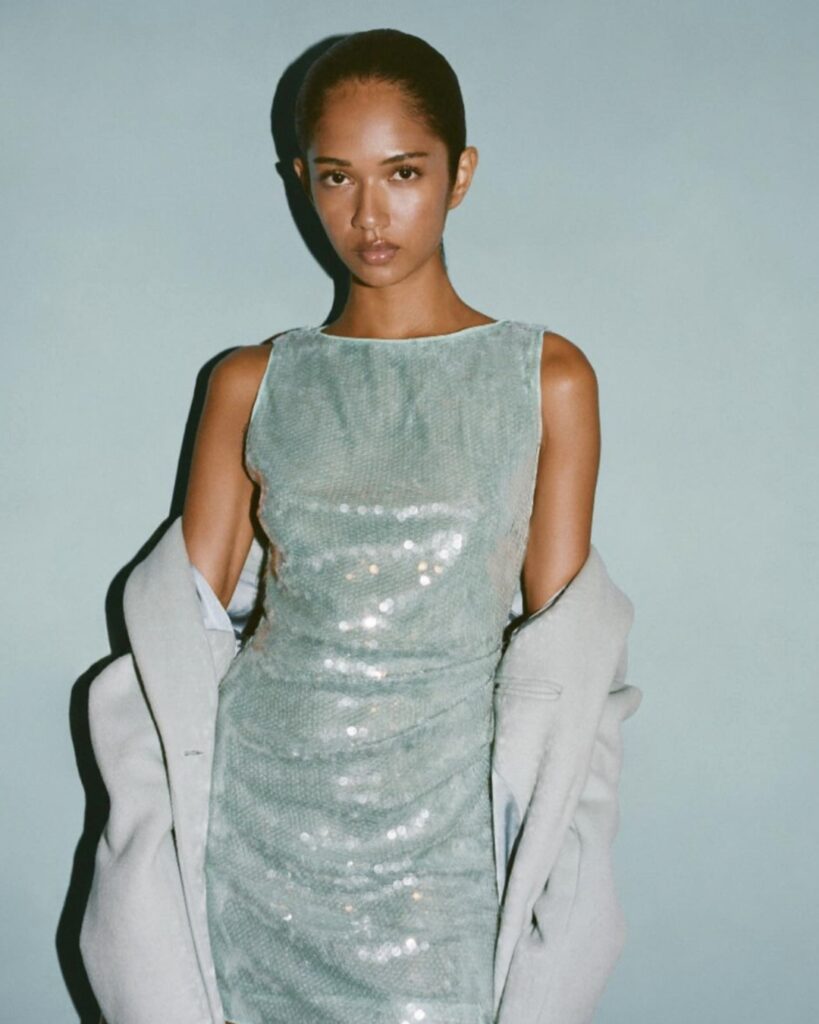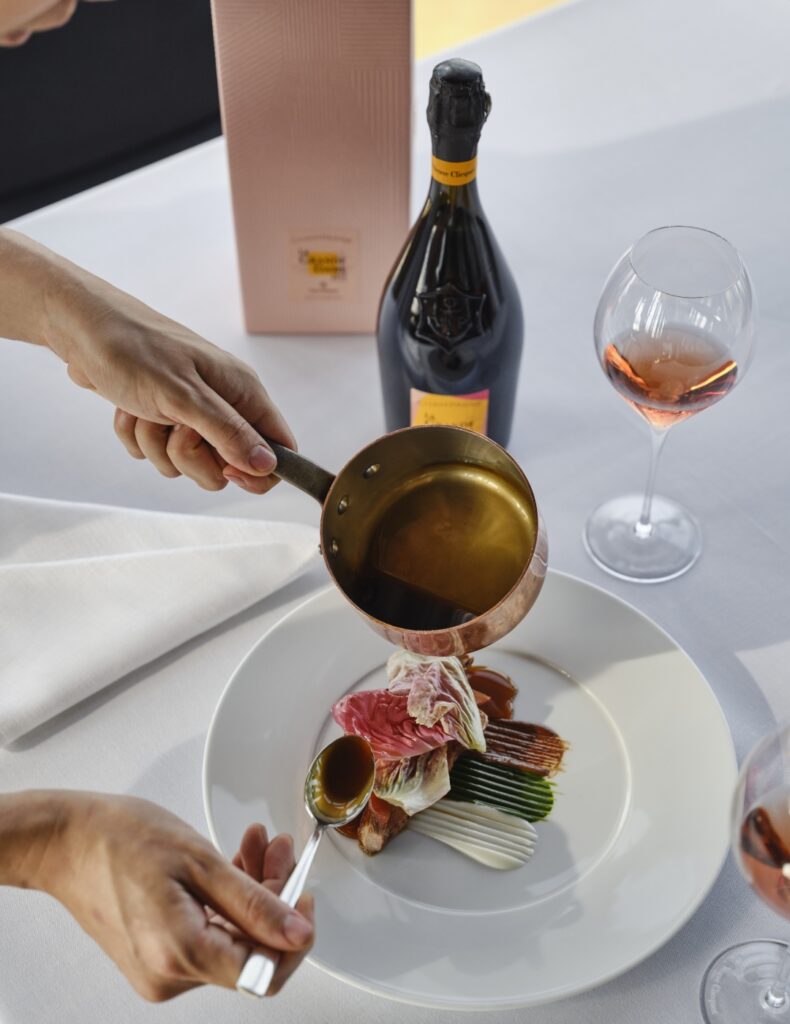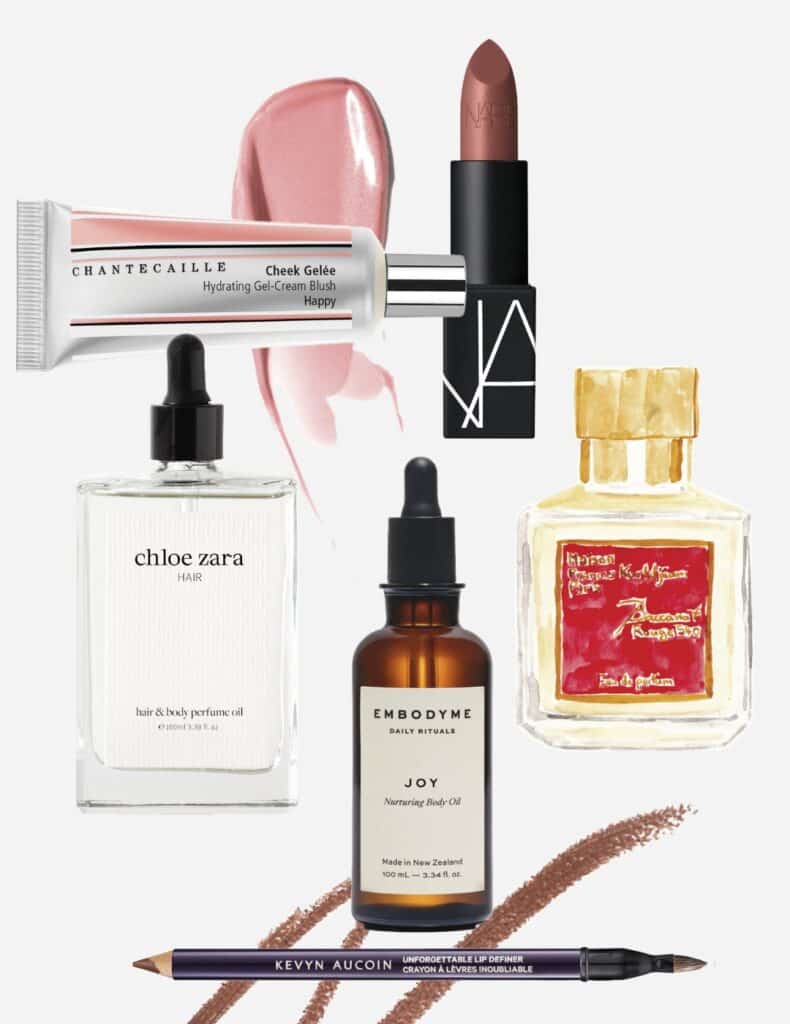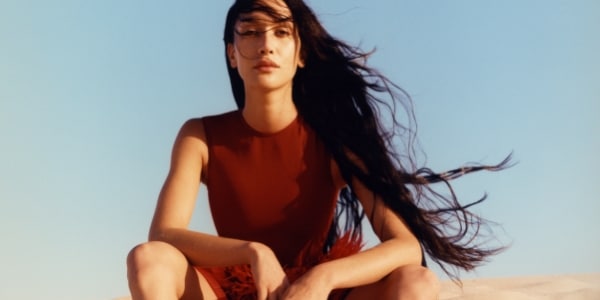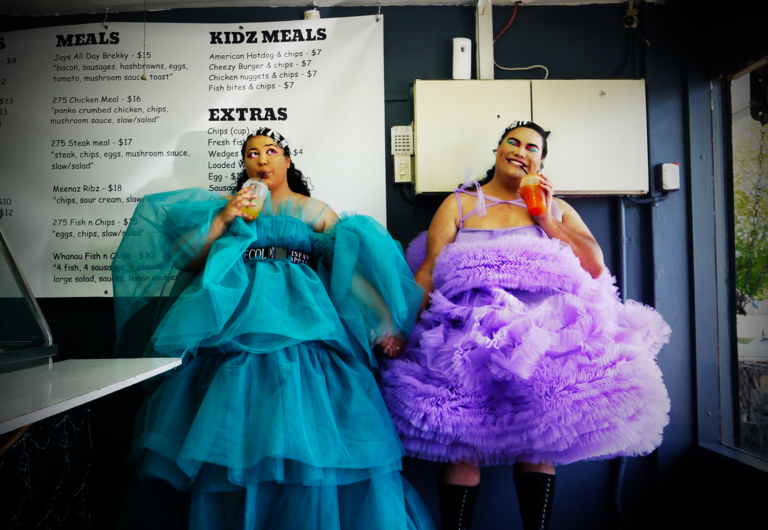
In 2018, Amy Lautogo learned how to connect a bodice to a skirt. “The world was not ready!” the designer laughs, reminiscing about the defining moment in her early thirties when “everything just clicked”.
What clicked for Lautogo was the beginning of a new career path designed to fulfil a purpose born through passion and lived experience, to reclaim the word ‘fat’ and to create space for a community of fat bodies in what was otherwise a traditionally exclusive industry.
“I was like, ‘Are you kidding?!’” says Lautogo, mimicking the garment construction process with her hands. “These two just need to go like this? Okay!”
From that moment forward, Lautogo has been trying to defy gravity, both literally through engineering her signature scintillating couture gowns to embody more-is-more volume, and figuratively by removing the stigma around fat bodies in fashion. Some might say that the Manurewa-based designer is well on her way to doing just that. Three years in, her made-to-order label Infamy Apparel has fought to promote fat equity in a multitude of arenas, dressing countless fat bodies in couture, collaborating with arts festival FatFeb, and gracing the stages of local events such as Pacific Fusion Fashion, New Zealand Fashion Week and holiday favourite Christmas in the Park.
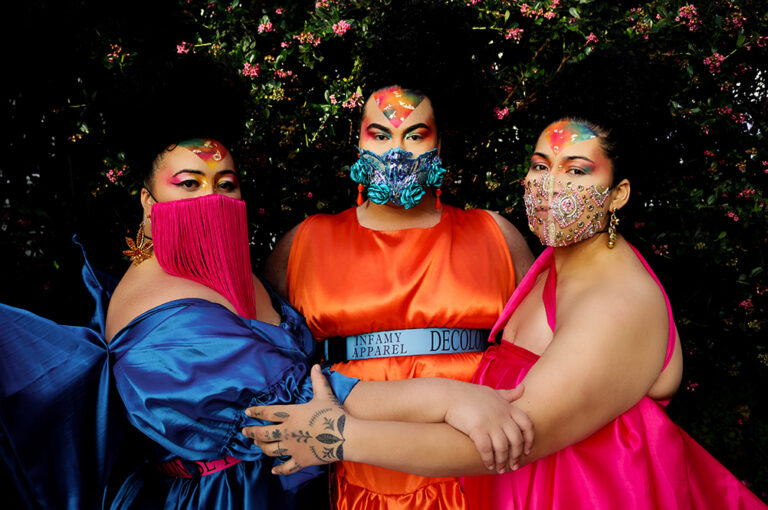
Lautogo explains that there’s much more work to be done. Getting to a place in which she’s recognised for her efforts in activism and fashion has been nothing short of a battle. “I went through a stage of wanting to be all things to all people,” she says. But catering for a spectrum of 20 sizes was out of the question for a one-woman start-up fashion label, as was convincing her peers that the way forward for Infamy was fashion for fat bodies — exclusively.
“I had a number of really negative experiences when I first started [in fashion],” she says. “When I said that what I wanted to do was for fat bodies, there was a lot of small mindedness, like [people saying], ‘Well, that’s not really fashion’ or ‘That would look so much better on a fashion size.’ I needed to go back to my core principles, which are to advocate, to disrupt the current narrative around fashion and fat bodies, and to create fantasy for my queer, fat, BBIPOC [black, brown, indigenous people of colour] community.”
It’s the designer’s community that has given her the strength and confidence to keep pushing those boundaries — her clients, Pasifika tutors and industry creatives alike. Lautogo says of her Samoan heritage, “My motivation is people. And I think that’s a very indigenous trait, to want to serve.”
Lautogo’s desire to support her community came well before her foray into fashion. After a trying first year at law school, she left to pursue an administrative and advocacy role in a trade union. It was there that she understood the reward and responsibility that come with helping communities, but she soon realised she wasn’t serving her own need for creativity or her love of fashion. “This was the job that made it clear I can do anything, [and so I thought to myself], ‘I’m going to try this. I’m going to try to learn to sew.’”
A stint at New Zealand Fashion Tech and pattern-making night classes at South Auckland’s DAS Training Solutions soon cemented Lautogo’s desire to create fashion to fit fat bodies. There’s a vast gap in the market for this fit, explains Lautogo. “[There are many] designers who say they stock plus size, but it’s literally just oversized… It won’t sit the same way, it won’t fall the same way, it’s not actually what it is. You’re just receiving the benefit of clothes that are [already] designed to be oversized.”
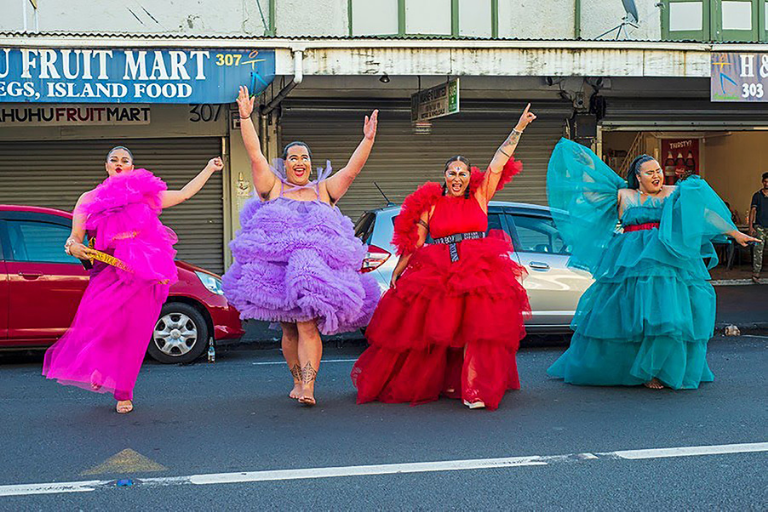
Lautogo can appreciate the somewhat inclusive resurgence of the oversized prairie and nap dresses that are trending right now, but she believes she has a great opportunity as a designer to reveal — not hide — the fat female form. “There are opportunities for finer tailoring to play with silhouette proportions in different places. [Fat] fashion doesn’t always necessarily need to look like it’s swallowing you or [be] really boxy,” she says.
It’s all about balancing the how and why of Lautogo’s opportunity and vision alongside her own personal growth. “It’s a really interesting position to be in when you create fashion and you create these images, these fantasy stories, but you’re still working on yourself as an individual,” she says. “[I’m still] fighting these little battles against my own body.”
Lautogo lives in fat advocacy, but believes that body neutrality is the first point that everyone needs to get to. “Within our fat activist community, we’re really leaning into intuitive dressing and intuitive living,” she explains. That includes boundary setting and being unapologetic — behaviours that women aren’t necessarily conditioned to enact.
“When it comes to intuitive dressing… it’s been a whole journey for me as a Samoan woman. There were little things I used to do to make myself more acceptable — ’cause I’m at that intersection of being fat plus brown — like having to have the ‘right’ kind of hair, the ‘right’ kind of make-up, and the way I did make-up tended to highlight my Euro-centric features,” she admits.
It’s hard work, fighting the feeling of inferiority that society has placed on fat bodies. But, says the designer, we need to de-weaponise the word ‘fat’ and remove its negative associations, so it can exist as it was intended — as an adjective.
“It’s important that we all start to talk about it, because within the fat community there are so many things we do to make ourselves more acceptable. And dressing in particular silhouettes, always being put together, having the shoes that match the bag that match the dress and the lipstick or the eyeshadow…” Lautogo sighs. “It’s tiring. I want to put my energy into good shit. I don’t want to be fighting [my body].”
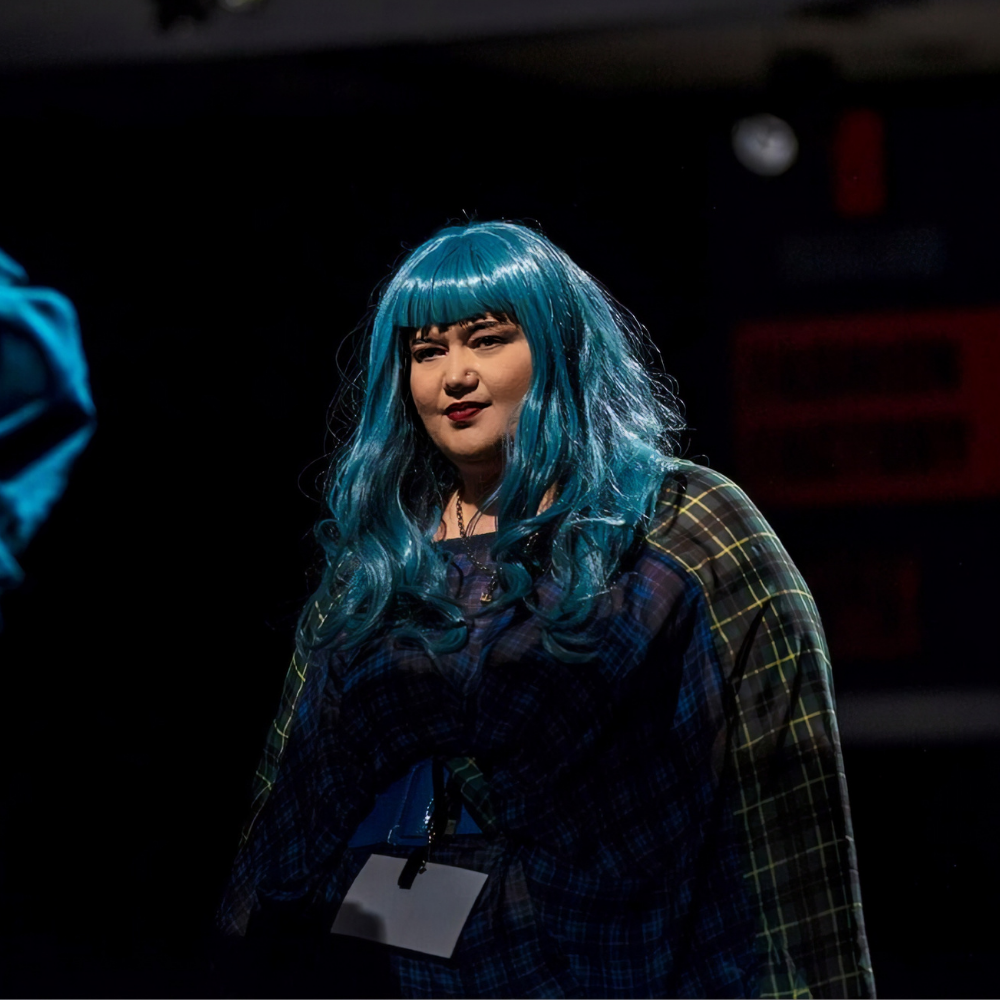
The good shit, as she calls it, is evident in Infamy Apparel. The designer’s home studio is a clear reminder of the brand’s successes in its short three years. There’s ‘Big Red’ — metres and metres of brilliant ruby tulle standing six feet tall on a mannequin — next to two voluminous, sequinned, beaded couture gowns that were meant to make their debut at this year’s now-cancelled FatFeb. Moodboard after moodboard is pinned with sketches, vibrant fabric swatches and photos of past campaigns, all starring Lautogo’s fat, queer and BBIPOC community — or muses, as she’s dubbed them.
There’s so much energy in this room, and Lautogo doesn’t seem tired at all. Rather, she’s humbled when asked what aspect of her work makes her happiest. “It’s actually a real honour to be able to do work like this because you interact with and hold people who have experienced such trauma relating to their body,” she says. “You can hold them with dignity and treat them so well. Watching someone put on something that has been made for them is a high — it’s like a dopamine rush. It gets me, and it is one of those things that keeps me going — because it’s not sexy being crouched over your sewing machine at midnight!”



